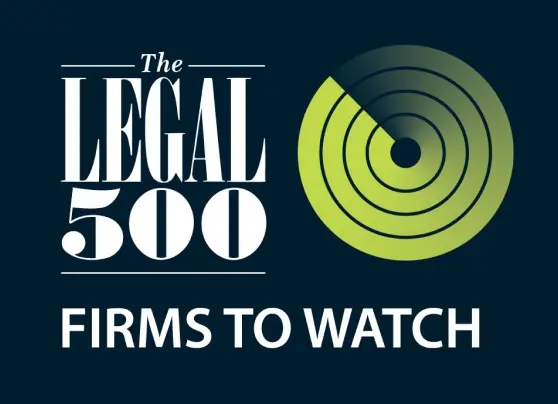In This guide, we’ll review Appendix FM minimum income requirements for applicants applying on or after April 2024. When applying for a UK spouse visa, one of the primary considerations is the minimum income threshold. This is a financial benchmark set by the UK government to ensure that individuals sponsoring their partner’s visa can support them financially without recourse to public funds.
What is Appendix FM?
Spouse and partner visa applicants must meet two main criteria:
- The minimum income threshold
- Suitable accommodation provisions
In this article, our primary focus will be on the minimum income threshold and its implications on applicants with various financial circumstances.
The guidance on the subject can be confusing. There are two main documents that are relevant.
• Appendix FM: Covers rules for various family applications, including spouse and partner visas under “Family life with a partner”.
• Appendix FM-SE: Provides details on the evidence format and income calculation methods.
Please be aware that this blog post is primarily meant for informational purposes and submitting an application based on this blog post isn’t advised as each application is unique and may require a slightly different approach that could mean the difference between getting accepted or rejected.
What Is the Minimum Income Threshold For Spouse Visa?
The minimum income threshold is a key financial requirement for those applying for a UK spouse visa. Simply put, it is the minimum amount of yearly income needed to sponsor your spouse’s visa application. This requirement ensures that the sponsor can support their spouse financially without relying on public funds.
- For a couple without children, the minimum income is set at £18,600 per year. However, this rule is due to expire by April 2024 when the minimum income will increase to £29,000 followed by gradual increase to £38,700 per year.
Related Articles
New UK Immigration Changes for Spring 2024
How to Switch from a Dependent Visa to a Work Permit (skilled worker visa) in the UK
New Income Requirement Rule from April 2024
The Government has announced that the minimum income requirement will increase from April 2024. It will increase from the current £18,600 per annum to £38,700 per year. Until we receive further guidance on this news, it is anticipated that there will still be different ways to meet the minimum income requirement.
Are There Any Additional Requirements for Families With Children?
Yes, the financial threshold for families with dependent children increases if the applicant includes dependent children in their visa application. A dependent child is defined as any non-British or unsettled person under 18 years of age, or who was under 18 at the time of their first visa application.
- First Child: The income requirement increases by £3,800 for the first child.
- Additional Children: For every child after the first, the requirement goes up by an additional £2,400 per child.
Summary
| Couple without children | Minimum income is set at £18,600 per year. |
| Couple with children | The income requirement increases by £3,800 for the first child. |
| Additional Children | For every child after the first, the requirement goes up by an additional £2,400 per child. |
Key Considerations
Inflation and Adjustments: It is important to note that this threshold has remained constant since its introduction in 2012, without adjustments for inflation or changes in living costs. Therefore, it’s understandable that the government may wish to introduce an increase to the minimum income required.
Inclusivity of Children: When calculating the threshold with children, you should include all children who are non-British or not settled.
We advise applicants to prepare and gather substantial evidence of their financial capability to meet these thresholds. Our expert immigration lawyers at Rove Legal are ready to support you with these documents.
Can I Include Income From Various Sources?
Broadly speaking, yes, it is possible to utilise income from other sources. The Home Office has various categories of what it accepts as sources and income. Each has its own complexities and evidential requirements that need to be taken into consideration.
- Categories A & B: Salaried and non-salaried employment.
- Category C: Non-employment, such as property rental income and investment income.
- Category D: Cash savings.
- Category E: Pension income.
- Categories F & G: Self-employment income or income from directorship/employment of a limited company.
Categories A & B: Salaried and Non-Salaried Employment
Category A: This is applicable when either the sponsor or the applicant (provided they are authorised to work in the UK) has maintained employment with the same employer for a minimum period of 6 months. In this case, the gross salary must meet or exceed the minimum threshold during this entire period.
Category A is the main source of income that most people will use to meet the minimum income requirement.
Can I rely on Category A if I have been with my employer for less than 6 months?
Not on its own. But if you have had another employer in the last 12 months and you can combine both incomes to meet the requirement then it may be possible under Category B.
From an evidential perspective applicants relying on Category A will need to provide payslips, bank statements for a 6 month period prior to the application and employment contract/ employer reference.
Category B: This category is for those applicants who haven’t worked in their current job for at least six months or have an income that varies. The Home Office calculates your income in two ways: they estimate your yearly income based on what you earn now, and they also look at the total income you’ve actually received in the past year. This allows them to determine whether you meet the financial requirements for the visa.
From an evidential perspective, an applicant may provide payslips and bank statements for the period during the period in which they were employed as well as payslips and bank statements for the 12-month period prior to the application.
Relevant Resources: How to Switch from a Dependent Visa to a Work Permit
Category C: Non-Employment Income
Category C addresses income from non-employment sources such as property rentals, dividends from investments, and maintenance payments.
This category is vital for applicants who may not have a traditional employment income but receive regular earnings from these other sources. To successfully apply under this category, applicants must provide documentation proving that they have received this income consistently over the past 12 months. This evidence is essential to demonstrate to the Home Office that they have a stable and reliable source of income outside of standard employment.
Category D: Cash Savings
This category is often seen as an option for those who might not meet income thresholds through regular employment. The cash savings calculation is not straightforward and often leads to confusion.
The calculation for the necessary amount of savings includes multiplying the minimum income requirement (£18,600) by 2.5 and then adding £16,000. You should also adjust the minimum income based on the number of dependent children. This ensures that applicants have a significant financial buffer, demonstrating their ability to support themselves and their partner without needing public funds.
| Minimum Income Threshold | Cash Savings Required |
| Partner with no children: £18,600 | £62,500 (£16,000 + 2.5(£18,600)) |
| 1 child in addition to the partner: £22,400 | £72,000 (£16,000 + 2.5(£22,400)) |
| 2 children in addition to the partner: £24,800 | £78,500 (£16,000 + 2.5(£24,800)) |
| 3 children in addition to the partner: £27,200 | £84,000 (£16,000 + 2.5(£27,200)) |

Category E: Pension Income
Category E is focused on applicants who rely on pension income to meet the financial requirements for a UK spouse visa. This category includes income from any state, occupational, or private pensions.
To qualify, the pension must have been a consistent source of income for at least 28 days before submitting the visa application. Applicants must provide official documentation that confirms their pension entitlement, along with personal bank statements showing the pension being deposited into their account. This category offers an alternative pathway for those who may not have employment income but receive regular pension payments.
Category F: Self-Employment
This category allows applicants to demonstrate their financial stability based on their business’s most recent full financial year and gross taxable profit.
- The financial year starts on April 6th and concludes on April 5th of the following year
- Gross taxable profits refer to the income generated by the business before any deductions (for example expenses)
Typical documents include the self-assessment tax return, and bank statements reflecting the business transactions for the full tax year.
Category G: Limited Company Directorship
Salaried directors of their own company or a company belonging to a family member count as employees of a ‘specified company’ and can apply based on their salary under Category G. If they are not salaried or want to rely on the dividend income from their firm, or a combination of both then they have to apply under category G.
What Is a Specified Limited Company?
A specified limited company refers to a specific type of family business. In this kind of company, the applicant or their partner, and potentially other immediate family members, hold significant shares. These companies are characterised by close family involvement in their operations and ownership, making their financial assessments for visa purposes more intricate due to the intertwined nature of personal and business finances. The term ensures that the income assessment takes into account the unique nature of family-run businesses.
The required documentation includes comprehensive financial statements and tax returns, offering a transparent view of the individual’s financial contributions through salary and dividends.
The burden of proof for both Category G & F is significantly more than any other category and we recommend you consult with our experienced immigration lawyers who have years of experience dealing with these cases.
Documents will include but not limited to:
- payslips and dividend vouchers for the last business/corporate tax year
- Personal and business bank statements for the same period
- Company Tax Return
- Company HMRC registration and VAT registration (where appropriate)
- Current Appointment Report
Sponsor Receipt of Benefits (Special Considerations)
There are provisions for sponsors who are recipients of certain government benefits. Therefore, sponsors who receive one or more of the below-listed benefits can also meet the financial requirements to support their partner’s visa:
- disability living allowance
- severe disablement allowance
- industrial injury disablement benefit
- attendance allowance
- carer’s allowance
- personal independence payment
- Armed Forces Independence Payment or Guaranteed Income Payment under the Armed Forces Compensation Scheme
- Constant Attendance Allowance, Mobility Supplement or War Disablement Pension under the War Pensions Scheme or
- Police Injury Pension
This provision guarantees that individuals receiving these benefits are not put at a disadvantage during the visa procedure, acknowledging the support they offer and their ability to sponsor their partner.
| Document Type | What It Must Include |
| Official Documentation from: – Department for Work and Pensions – Veterans Agency – Police Pension Authority | Confirming the benefit entitlement and amount currently received. |
| Personal bank statements of the applicant and/or sponsor | At least one from the 12-month period prior to the date of application, showing the benfit payment into the person’s account. |
Combining Income Sources
Applicants can combine different categories of income to reach the minimum threshold. However, not all categories can be mixed, and specific rules apply for combining them. It is also important to consider the evidential time frame. For example if an applicant is employed in a family business, they’d not be including payslips for the last 6 months but for the period during which the company tax return was due. This period may be from over 12 months ago, so it is important to consider timing.
If you’re looking to combine your income from various categories contact our lawyers at Rove Legal to discuss your case.
I don’t seem to qualify under any of the above categories. What should I do?
Exceptional circumstances procedures are part of the Home Office application review process for those facing uniquely challenging situations.
Should the rejection of an application potentially result in disproportionately harsh outcomes for the applicant, their partner, or a relevant child, the Home Office might take into account alternative income sources that are both credible and dependable. This allows applicants to present alternative financial support or funds, ensuring fair consideration of circumstances that fall outside the usual income categories (for example support from Family and Friends).
Evidence and Calculation
Each category has specific requirements for evidence and calculation. Applicants must thoroughly understand these to present a valid case.












